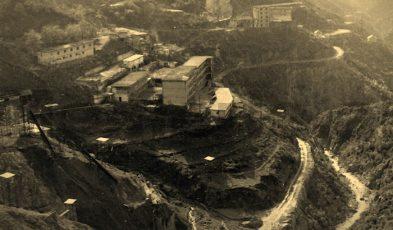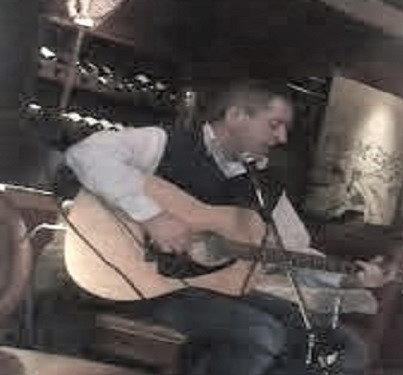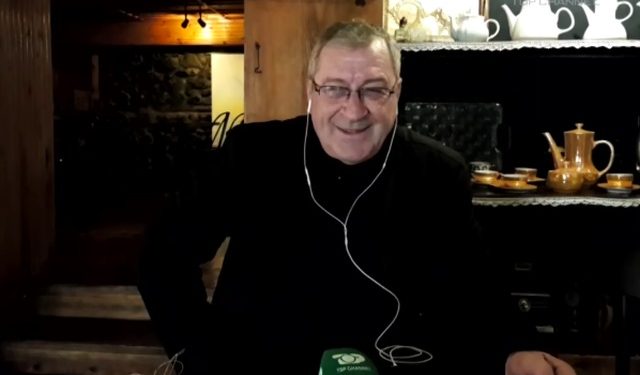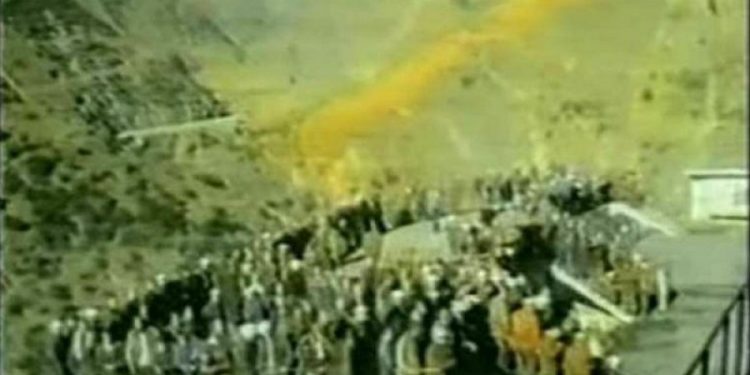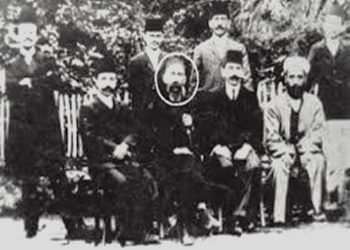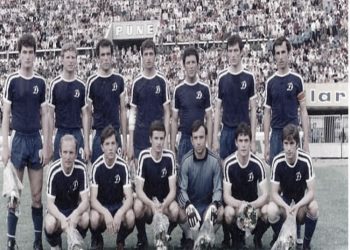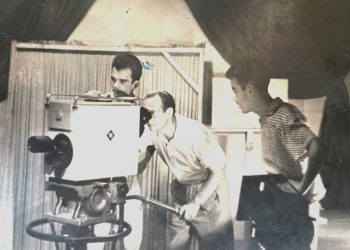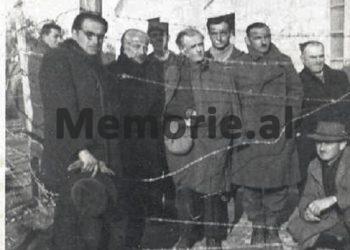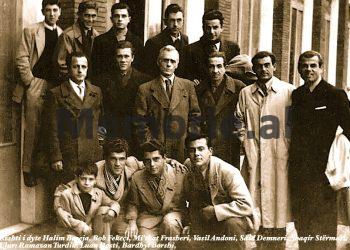Najada Pendavinji
Memorie.al / What couldn’t a prisoner who had a passion for the guitar, play with it once! The prison command also knew this that it was not enough for the prisoners to physically torture them, but they also wanted to humiliate and torture them psychologically, so they left the guitar in the hands of Tomi Kondakçi, asking him to sing for Enver Hoxha. Then Tom cut off the cheekbones of his fingers, just so he wouldn’t comply with that request. And this was not the only occasion when he sacrificed to protect his dignity. Tomi Kondakçi tells about the sufferings of his prison years that he chose to face without making compromises.
Tomi Kondakçi is one of the persecuted of Enver Hoxha’s dictatorial regime, for whom the gates of communist prisons would be opened at the age of 19, interrupting his dreams to build a future away from Albania, the communist dictatorship which did not give him the opportunity to develop his art: music.
He was born in 1959, in the city of Korça. The ordeal of his suffering and persecution begins on the very day of his arrest, on April 21, 1980, being convicted on the charge of “escape attempt and propaganda agitation”.
Tomi Kondakçi served his sentence first in the Spaç prison and then in the Qafë-Bar prison camp, becoming one of the eyewitnesses of the ‘Qafë-Bar Revolt’, for which, among others, he says that it is thought that it was programmed by the Ministry of the Interior itself, to make the next eliminations, which would be merciless.
The picture of violence and the challenge to survive from the communist prisons witnessed by him is so tragic that it surpasses any imagination. Today he is over 60 years old and continues his musical activity in the city of Korça, living what the communist regime, despite the punishment, could not fade: his passion for the guitar and singing.
Mr. Kondakçi, what was the reason for your arrest?
Reason…! The communist regime was a political regime which had violence and terror as a goal in itself, which it exercised not only on persons who were potentially dangerous for the system, but also against those individuals who simply thought differently.
The same thing happened to me. I was 19 years old when I was involved in the whirlwind of communist revenge which served to keep alive the momentum of terror. This is how I was convicted for the first time in 1980, accused of “treason against the motherland”, in the form of fleeing abroad, remaining in the attempt phase and “agitation and propaganda”. It was the 1979-1980s and Albanian society was all under surveillance, not free in thoughts and actions.
The only way to be free was to escape through the border. I knew that I would have no future in communist Albania, because of the passion I had: singing and guitar. I had been thinking about such a thing for a long time, which I had not even discussed with my parents.
The destination would certainly be America. I didn’t go alone, two of my friends also came, one of whom was Vat Kola, the son of Marash Kola, head of the Interior Branch in Korça, who expressed that they had the same desire.
So, we had nothing left but to realize what we had in mind. The route would be Korçë – Pogradec – Tushemisht – Ohrid – Yugoslavia. We walked until the moment when I realized that my friends were no longer behind me, as they had left me at the Pogradec Bunker.
They had spied on me at the State Security. The only thing I thought in those moments was to continue the path that I didn’t even know where it would lead me. I continued swimming and after 3 km. which I had done, I was caught red-handed for crossing the border.
What happened in the investigator?
The interrogation room of the time was the place where a person could undergo a transformation of his personality, as a result of torture, beatings, moral humiliation, and contempt, psychological pressure exerted on him, to admit crimes that he never committed. Immediately after the arrest, I was taken to the Internal Branch here in Korça. The dungeons of Korça were terrible.
They were not unknown to me because they were located in front of my house. We were separated only by a wall where the screams and screams of each of the convicts who were inside those dungeons could be heard very well. The investigators of my case were Petrit Lila from Vlora and Arqile Dine. The investigation has continued for almost 8 months.
The questions were of the most different which had a single goal: to admit that I had committed crimes against the state. In fact, I admitted that my goal was to escape the country for a better life, in the distant country, America.
Of course, this is where the situation got worse, because they couldn’t accept that we were unhappy with the communist system and didn’t agree with it. The questions were accompanied by beatings and blows until they said: “enough”!
How did the trial go? Who were the prosecutor and judge who decided your sentence?
After the end of the investigation, the trial took place, which became exemplary and was called the trial with open doors. It took place in the premises of the Court of Korça, where my whole company and many other people who I did not know, but they knew me, as I have practiced my musical activity for a period of time, participated.
Of course, there were also prejudices and insults on their part, but this is why the trial with open doors serves: to humiliate in front of people and most importantly, to scare other members of society, showing them what awaited them if they acted as me.
The judge and prosecutor of the case were Vera Halili and Vaskë Pano. In the decision taken by the Court of Korça, there was an accusation of “treason against the motherland in the form of attempted escape” and “agitation/propaganda”, sentencing me to 12 years in prison.
Where did you serve your sentence, in what prison or camp?
I served my sentence in two of the most brutal prisons and camps of that time, Spaçi and Qafë-Bari prison. First, they took me to Spaçi prison. We were young and able to work, so I had to try hard work in the gallery, where life was in danger from moment to moment. The working and living conditions in the Spaçi mine were terrible.
In terms of food, it was “abundant” since energy was needed to cope with shift work, which was not paid as much as we deserved because the reward was stolen. I didn’t stay long, almost 2 and a half years, but if you wanted me to describe the situation that prevailed in Spaç, I can tell you with full conviction that the criminal policy of Enver’s communist regime was best reflected in this camp Hoxha, who were “hyenas” who were never satisfied with human lives.
In this camp, just as it could happen in other camps of the communist regime, there were many accidents during work in the gallery for which, not only no safety measures were taken, but also served as a revenge against the convicts . But besides the others, it was also the collective life which helped to share the pain and the flow of life, which continued despite everything.
That’s why I want to mention my co-sufferers such as: Muhamet Pojani, Petrit Bazelli, Sherif Merdani, Vasil Jano, Fevzi Alizoti, Visar Zhiti, etc., with whom I shared not only the prison but also maintained that friendship after it.
How do you remember the Qafë-Bari prison?
Immediately after the Ballsh prison was closed, a part of the Spaçi prisoners were moved to another camp, which was the one of Qafë-Bari in the district of Puka. From one hell to another hell. I would also be part of these prisoners. The day I found out that we were going to Qafë-Bari, I had a meeting with my family, it was a long way and therefore only my father had come.
They experienced my punishment very badly, but thank God, they were not affected by the system as a result of my persecution, since it is known that the persecution of the communist regime did not end with the imprisonment of the one who had committed the “guilt”, but also continued with the members of other family members. Of course, I didn’t mention the transfer part to my father because they would feel very bad and I didn’t want them to try to come all the way to Qafë-Bari, as it was not only a struggle on their part, but also an excessive expense.
Qafe-Bari was a place located between the mountains from which came a terrible frost. In this camp, I can say that we were about 900 prisoners, who were used to extract minerals from the rocks, but with primitive tools. So the prisoners carried the greatest weight in the extraction of minerals, realizing the annual plan that the Internal Branch itself had.
There were four dungeons in Qafë-Bari, one of which was called the “ice dungeon”, which I also tried for 30 days. The motive was too banal: “not making the bed”. In this dungeon, you entered only in your body clothes and during the night, you walked, as the cold was terrible.
Regarding the Qafe Bari Revolt on May 22, 1984, I was a participant in it, like everyone else, and I can say with full conviction that, indeed, the prisoners had a thousand reasons to erupt in revolt, but its initiators indeed, it was the people of the Ministry of the Interior and State Security who thought that the moment had come to cruelly annihilate “dissidents” and political opponents, who, according to them, endangered the communist government…!
Have there been attempts to make you an associate of the State Security?
Yes, there was. The “gates” of the State Security were open to anyone who would attack the opponents of the regime. Of course, in return for this, you had various benefits. It happened to me that while I was serving my sentence in Spaçi prison, they called me to the State Security bodies to become their spy, but not only that: they asked me to be a witness in the trial against my friend my, Kiço Mihallarit.
Of course I did not accept, despite the pressure they put on me. It may seem unbelievable to you since, in the state we were in, a thin line separated us, to accept in exchange, maybe even freedom…! But character, conscience and humanity could not be diluted for any kind of benefit that could come from that regime which tried to harden even the most sacred thing, the human feeling.
As a result of my refusal to enter into the vortex of espionage, I was again sentenced to two years in prison, where, from the 12 years that was the court’s decision, they became 14 years in prison. I was happy despite the re-sentence because I didn’t lose my friendship with my friend and most importantly my dignity.
Do you have a particular event that sticks in your mind?
There are a lot of events, because it wasn’t days that we spent in communist prisons, but years. But I will mention to you a situation, which has not only stuck in my mind, but is also part of my body. When I was in Spaçi prison, standing in the silos with my fellow prisoners, the commanding officers came to us and had musical instruments with them; the first was guitar and the other accordion.
They approach handing the guitar to me and the accordion to another. They knew very well that I knew how to play the guitar and they ask us to sing a song for Enver Hoxha. This was humiliation. No matter how much I missed the song and the guitar, not only would I not fall for it, but even if they gave me the biggest punishment, I would not sing for that exemplary man.
And that’s what I did: I asked my friend, Feim Salianji, who was there, to cut the cheekbones of my fingers with a beak. It was very difficult for him to do such a thing, but I forced him, since there was no other option but to act.
Even today, I have a sign of the past that every time I look at it, I feel proud that I did that. So the song about that man was not realized and would never be realized by me. There were also such incidents in communist prisons, but you must know how to survive with honor.
When were you released from prison and how did your life go on after that?
I was released in 1987, by decree of the Assembly, serving only 7 years and 8 months in prison, out of the 14 years I was sentenced to, because I benefited from the work I was doing, but also from the amnesties that were being implemented at that time. This news came to me like “lightning from the sky”, as I did not expect such a thing. Returning home is a special feeling, where mother, father, family and old friends are waiting for you.
Coping with life after prison was even more difficult than I thought because the stain on the biography would remain a big callus that needed time to clean. The communist regime was established in such a way that, even after its fall, it would leave an indelible mark on the collective memory of the Albanian society itself, where the persecuted class would always be seen as “enemies of the people”…! Memorie.al





